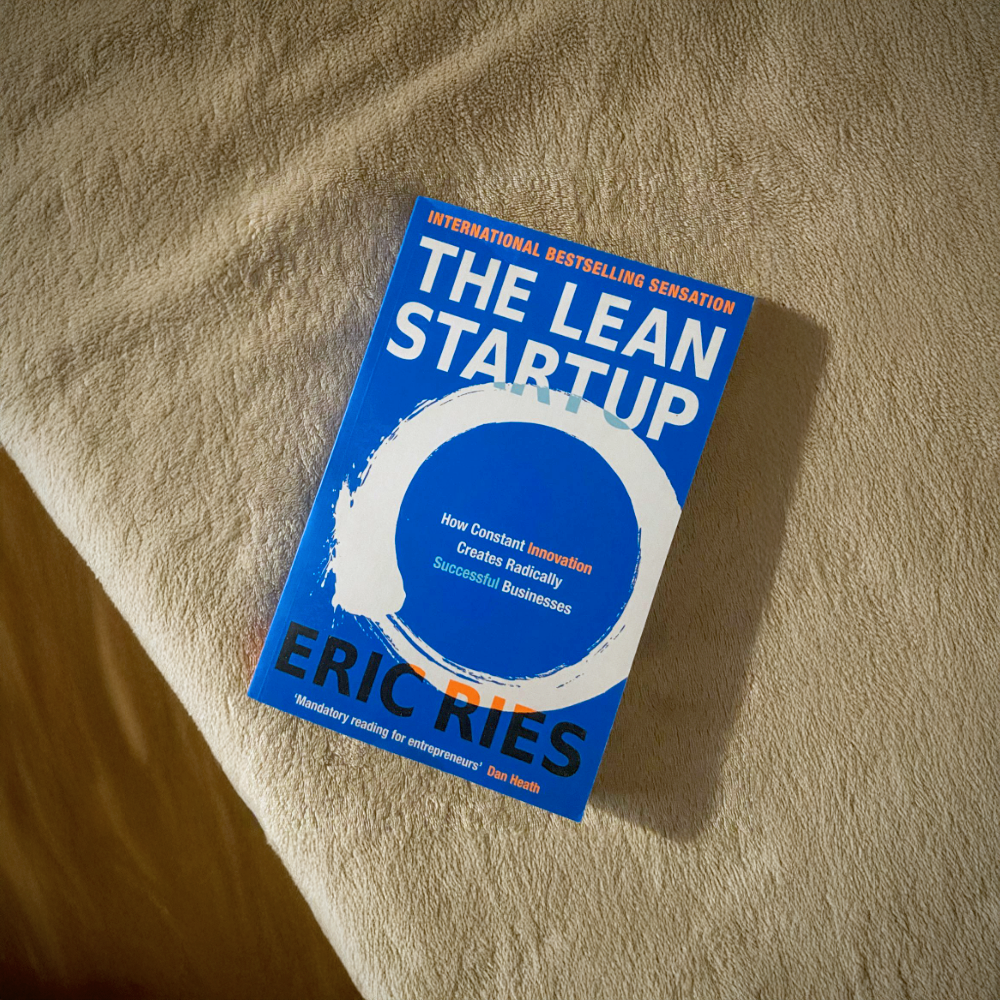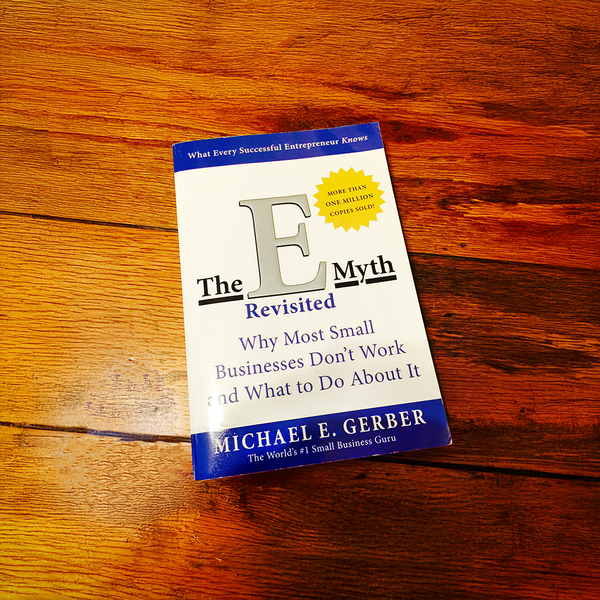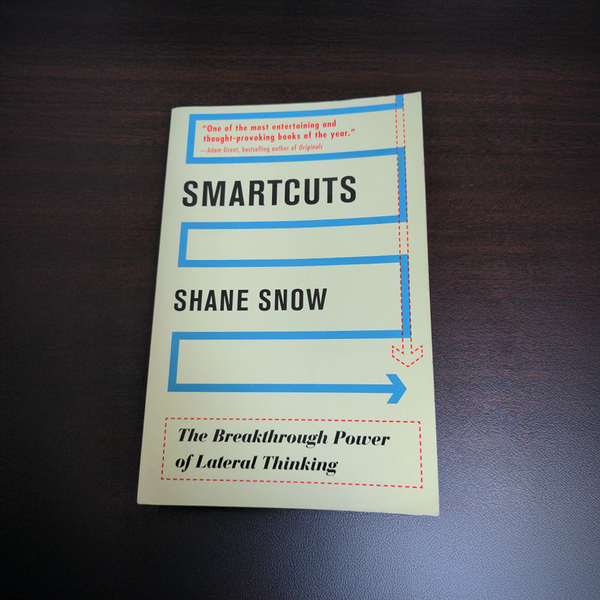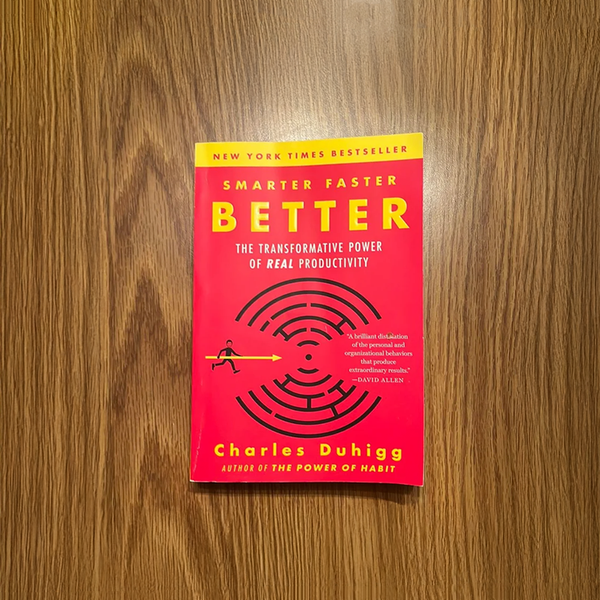The Lean Startup: A Modern Blueprint for the Innovation Era
In a time when disruption is the norm and agility is the key to survival, The Lean Startup: How Today's Entrepreneurs Use Continuous Innovation to Create Radically Successful Businesses by Eric Ries offers something rare: a comprehensive, adaptable, and proven framework for building breakthrough businesses under extreme uncertainty.
Whether you’re a scrappy founder in a garage or an intrapreneur inside a Fortune 500 giant, the book demonstrates startup how today's entrepreneurs leverage innovative management methods and lean principles to build and grow successful new businesses. Ries’s methodology meets you where you are and pushes you toward where you need to be—with clarity, precision, and relentless practicality, making it especially relevant for today's entrepreneurs navigating a rapidly changing environment.
But this is no ordinary business book. The Lean Startup is a paradigm shift—a manifesto for entrepreneurs, creators, and change-makers who are tired of wasting time, resources, and energy building products or services no one wants. Instead of gambling on big ideas, Ries shows us how to learn fast, test constantly, and pivot wisely.
By applying Lean Startup principles, today's entrepreneurs can create a more successful entrepreneurial business, increasing their chances of building a sustainable and highly successful venture. And the result? Not just more successful startups, but a smarter way to build anything. For practical guidance on validated learning, rapid testing, and innovation processes, read Lean Startup to increase your chances of success.
Innovation Meets Methodology: The Core of Lean Startup Methodology and Lean Thinking
What makes The Lean Startup so compelling is its union of two worlds that often clash: entrepreneurial vision and scientific discipline. Traditionally, startups were all about guts, guesswork, and going big. But Ries turns that model on its head with the concept of validated learning—the idea that startups should treat every assumption as a hypothesis to test, not a truth to build on. The Lean Startup uses a scientific approach to systematically test assumptions, gather data, and drive progress through rigorous experimentation.
Drawing inspiration from lean manufacturing principles pioneered at Toyota, Ries adapts techniques like small batch production, just-in-time delivery, and continuous improvement into a flexible, innovation-ready model. The core elements of this system include:
- Minimum Viable Product (MVP): Launch fast with the smallest possible version of your idea.
- Build-Measure-Learn loop: A cycle of experimentation that replaces guesswork with real-world data. Entrepreneurs use continuous innovation to adapt and improve their products based on customer feedback and rapid testing.
- Pivot vs. Persevere: Learn when to adjust your direction—and when to stay the course.
Continuous innovation to create new solutions is central to this Lean Startup methodology, enabling startups to evolve and thrive in uncertain environments.
The beauty of these tools lies in their simplicity and adaptability. Whether you’re building a new app, launching a social enterprise, or reimagining a public service, this methodology offers a GPS to help navigate the chaotic terrain of innovation—demonstrating lean startup how today's entrepreneurs build successful businesses.
Creating a Culture of Innovation
Building a truly innovative organization isn’t just about adopting the latest tools or chasing the next big idea—it’s about cultivating a mindset that thrives on experimentation, learning, and adaptability. The lean startup methodology, championed by Eric Ries and widely discussed in the Harvard Business Review and at Harvard Business School, offers a blueprint for embedding this culture of innovation at every level of your company.
At its core, the lean startup approach is about more than launching products—it’s about creating radically successful businesses by leveraging human creativity and embracing continuous innovation. Instead of relying on elaborate business plans or a stable operating history, the lean startup method encourages teams to shorten product development cycles and focus on validated learning. This means using rapid scientific experimentation and a tight feedback loop to measure actual progress, not just activity.
Organizations that adopt lean startup principles empower their teams to challenge assumptions, shift directions when needed, and pursue customer development with relentless curiosity. This willingness to operate in a state of extreme uncertainty—where plans are altered inch by inch based on real-world feedback—sets successful startups apart from those that cling to outdated models.
As highlighted in the Wall Street Journal and New York Times, the lean startup movement has helped countless entrepreneurs and seasoned professionals alike avoid costly startup failures and instead build sustainable, capital-efficient companies.
But creating a culture of innovation requires more than just process changes; it demands a shift in mindset. Leaders must encourage counter-intuitive practices, such as celebrating failed experiments that yield valuable insights, and prioritize innovation accounting—measuring progress through actionable metrics rather than vanity statistics. This approach, often discussed on popular blogs like Startup Lessons Learned, ensures that teams are always on a successful path, learning from both past customers and new ones.
The lean startup theory also integrates seamlessly with other innovation frameworks, such as design thinking and agile development. By combining human-centered design, rapid prototyping, and continuous iteration with the lean startup method, organizations can unlock new levels of creativity and resilience. This holistic approach not only helps secure initial customers but also drives sustainable growth and long-term profitability.
Venture capital firms and successful entrepreneurs increasingly look for evidence of a lean startup culture when evaluating new ventures. They know that companies committed to continuous innovation, customer development, and rapid experimentation are far more likely to create radically successful businesses—even in the face of extreme uncertainty.
Ultimately, fostering a culture of innovation means making continuous learning and improvement part of your organization’s DNA. By embracing the lean startup methodology, measuring actual progress, and empowering teams to leverage their creativity, you set the stage for breakthrough ideas, sustainable growth, and a future defined by possibility—not by risk.
Beyond Startups: A Universal Framework for Progress
Although the title might suggest it’s just for entrepreneurs, The Lean Startup speaks to a far broader audience. Educators, government innovators, healthcare leaders, product designers, and nonprofit directors have all found value in Ries’s insights. Why? Because the core question at the heart of this book—“How can we build what people actually want, faster and more efficiently?”—is relevant across industries and sectors. Startups are fundamentally a human institution, not just a product or technology.
Ries challenges the idea that success is simply the result of vision, hustle, and luck. Instead, he shows that outcomes improve dramatically when you build systems to test ideas quickly, measure what matters, and respond to evidence rather than ego.
A startup is a human institution designed to create new products and services under conditions of extreme uncertainty. Startup ventures, with their experimental and innovative nature, require specialized management approaches to validate ideas and adapt rapidly. That makes this book not only a roadmap for growth, but a call to arms for a smarter, more responsible innovation culture.
The Power of the Pivot: Validated Learning to Steer with Data
One of the most powerful contributions The Lean Startup makes to the business lexicon is the concept of the pivot. Unlike failure, which traditionally signals defeat, a pivot is a strategic course correction based on real customer feedback. Both product strategy and business strategy are informed by data and validated learning, enabling startups to make deliberate, evidence-based decisions that guide innovation and growth.
Ries illustrates this with memorable case studies—startups that initially launched with bold visions but realized, through data and experimentation, that they needed to shift focus. These stories don’t just inspire; they offer real, replicable strategies for turning setbacks into stepping stones. The “pivot or persevere” moment is where many founders struggle, and this book equips them with the language, framework, and courage to make that decision wisely.
And this lesson doesn’t just apply to startups. Managers, educators, and creators all face the same tension: stick with what’s comfortable, or pivot toward what’s needed? The Lean Startup gives you tools to make that decision with clarity—not guesswork. These strategies are essential for achieving startup success, as they help reduce failure rates and foster sustainable growth.
Why This Book Is a Game-Changer
The endorsements are wide-ranging and enthusiastic—and for good reason. Influential thinkers and leaders like Marc Andreessen, Tim O’Reilly, Jeff Immelt, and even former Facebook co-founder Dustin Moskovitz have sung the praises of The Lean Startup. But its influence goes far beyond Silicon Valley. For example, IMVU, the company co-founded by Eric Ries, achieved tremendous success by applying Lean Startup principles, becoming a highly innovative and profitable enterprise recognized for its impact in the virtual goods industry.
Here’s what makes it stand out:
- It’s deeply practical. The strategies outlined in the book aren’t vague theories; they’re field-tested methods backed by real results, helping you build a successful entrepreneurial business through structured, validated approaches.
- It’s designed for uncertainty. In today’s world, nothing is stable. This book gives you a process that thrives in chaos.
- It champions resourcefulness. Lean doesn’t mean cutting corners—it means cutting waste. Ries teaches you how to be capital-efficient and human-centered at the same time.
- It’s rooted in humility. The Lean Startup isn’t about being right. It’s about being willing to learn when you’re wrong—and then adapting faster than your competition.
Perhaps most importantly, this book doesn’t just inspire you to dream bigger. It gives you the tools to make those dreams real—step by actionable step. For the serious entrepreneur, The Lean Startup is essential reading for turning innovation and disciplined management into lasting success.
Redefining What “Productivity” Looks Like for a Sustainable Business
One of the most valuable shifts The Lean Startup encourages is redefining what success looks like during early-stage product development. In the traditional model, productivity is measured by how much you build, how many features you release, or how fast you ship. But Ries argues that none of that matters if you’re building the wrong thing.
Instead, he proposes a new metric: validated learning. Every test, every prototype, every customer interview is an opportunity to learn what works, what doesn’t, and what needs to change. Progress isn’t about velocity—it’s about direction. For early-stage ventures, this means continuously understanding and iterating on the business model to ensure you are delivering real value and adapting to market needs. And sometimes, the fastest way forward is to stop, ask better questions, and rethink your assumptions.
This mindset has profound implications—not just for startups, but for any creative or organizational effort. It’s a shift from efficiency to effectiveness, and from blind execution to intentional iteration. Ultimately, adopting this approach helps lay the foundation for a sustainable business that can thrive and adapt over time.
Real-World Impact: Stories That Stick
Ries doesn’t just tell you what to do—he shows you how others have done it. From scrappy startups that redefined their industries to legacy corporations learning to innovate like newcomers, the book is filled with compelling examples. You’ll learn how:
- A hospital improved patient care by mimicking racecar pit crews.
- A product launch failed successfully by yielding vital feedback before it scaled.
- Organizations saved millions by abandoning vanity metrics in favor of actionable insights.
- Eric Ries's third startup, IMVU, which he co-founded, achieved tremendous success by leveraging Lean Startup principles to build a large user base and generate significant revenue.
Each story reinforces a core principle and offers a practical takeaway, making the book as enjoyable as it is educational. These stories also illustrate how innovation to create radically new solutions can drive remarkable results. And the metaphor of steering a car—versus launching a rocket—makes the core message unforgettable: in uncertainty, continuous course correction wins over rigid planning every time.
The actionable insights provided emphasize the importance of securing initial customers and attracting new customers as part of the Lean Startup process, ensuring that early validation and customer feedback guide product development and growth.
For the Builder, the Dreamer, and the Leader
If you’re a founder, The Lean Startup is your operating manual.
If you’re a manager, it’s your playbook for fostering innovation. The book is also a guide for the corporate entrepreneur seeking to drive innovation within established organizations.
If you’re a maker, a mentor, or a misfit trying to create something meaningful in a complex world, this book will challenge and empower you.
In an age where traditional planning is obsolete the moment it’s written, this book offers a living, breathing approach to building great things. It invites you to stop working harder on the wrong things—and start working smarter on the right ones. For start ups, it provides practical guidance to navigate the unique challenges faced by early-stage companies.
Final Thoughts: A Revolution in Real Time
The Lean Startup doesn’t promise overnight success. What it offers is far more valuable: a disciplined, learnable, and scalable method for building meaningful products and resilient companies. Lean Startup principles are now widely used to inform business and product strategy, helping founders align their vision with practical execution. It’s a methodology that embraces uncertainty instead of fearing it, treats failure as a stepping stone, and places learning at the center of innovation.
Startups face high uncertainty, unlike established companies that operate in a relatively static environment where traditional long-term planning is more effective. It’s a book that will challenge your assumptions, sharpen your thinking, and transform how you work. Whether you’re at the helm of a new venture or reshaping legacy systems from within, The Lean Startup is a compass pointing you toward smarter, faster, more sustainable success.
By encouraging experimentation and rapid iteration, the methodology helps reduce startup failures and increases the odds of building successful businesses. Because in a world where change is constant, those who learn fastest—and adapt with purpose—are the ones who lead.
Lean Startup principles are now a central topic at business events, including industry conferences and startup seminars, where entrepreneurs and business leaders share insights and best practices. Companies like Lotus Development Corp exemplify innovative entrepreneurship and the adoption of structured approaches to building successful ventures.
The influence of Eric Ries’s popular blog Startup Lessons Learned has also played a key role in spreading Lean Startup ideas and lessons to a global audience of founders and innovators. Bring home your own copy of this impactful book today and kick off your next startup!
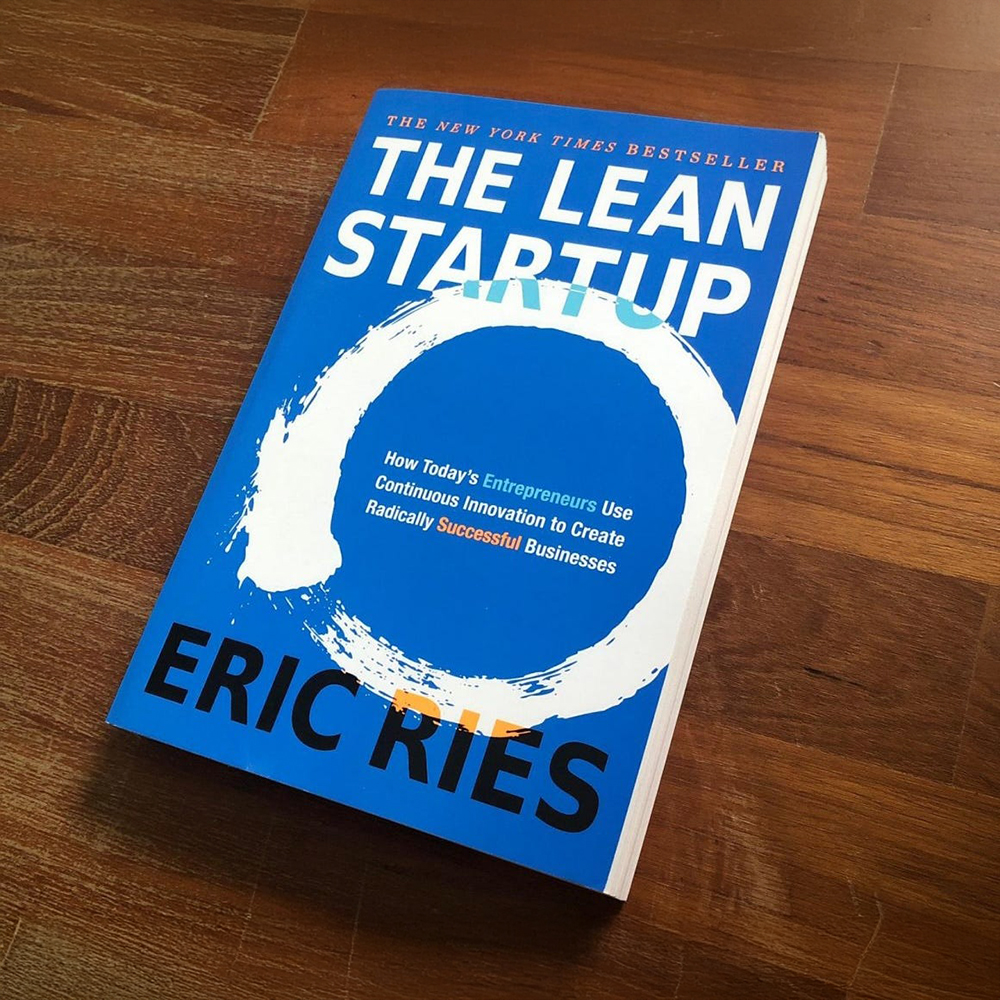
The Lean Startup: How Today's Entrepreneurs Use Continuous Innovation to Create Radically Successful Businesses by Eric Ries
Want even more content about creativity and art?
Be sure to check out all of our creative chronicles!
Looking to get inspired with some awesome books?
Check out some of our other articles:
-The 7 Habits of Highly Effective People
-The Seven Spiritual Laws of Success


